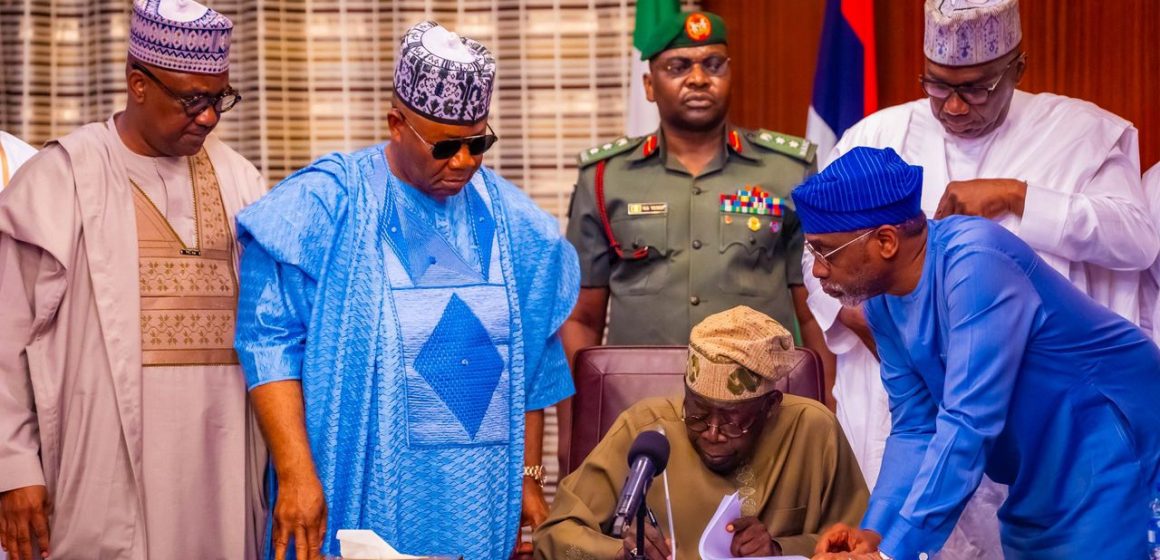President Bola Ahmed Tinubu has signed four major tax reform bills into law, signaling a new phase in Nigeria’s efforts to streamline its tax system, boost revenue generation, and create a more business-friendly environment.
The brief signing ceremony held at the Presidential Villa on Thursday was attended by key figures, including Senate President Godswill Akpabio, House of Representatives Speaker Tajudeen Abbas, and governors Abdulrahman Abdulrazaq of Kwara and Hope Uzodinma of Imo.
The new laws, passed by the National Assembly after months of stakeholder consultations, are expected to reshape Nigeria’s tax architecture. The bills are: Nigeria Tax Bill (Ease of Doing Business), Nigeria Tax Administration Bill, Nigeria Revenue Service (Establishment) Bill, and the Joint Revenue Board (Establishment) Bill.
Speaking after the signing, presidential spokesman Bayo Onanuga said the new tax laws are designed to bring about “a significant transformation of tax administration in Nigeria,” with positive ripple effects across the economy.
“These laws will increase government revenue, improve the ease of doing business, and make Nigeria more attractive to local and foreign investors,” he noted.
Among the reforms, the Nigeria Tax Bill seeks to consolidate and harmonise Nigeria’s scattered tax statutes, making compliance less burdensome for taxpayers. It aims to reduce duplication, cut down the number of taxes, and improve clarity for businesses.
According to a statement from the Presidency, “By reducing the multiplicity of taxes and eliminating duplication, the bill will enhance the ease of doing business, reduce taxpayer compliance burdens, and create a more predictable fiscal environment.”
The Nigeria Tax Administration Bill creates a unified framework for tax processes at federal, state, and local levels, while the Nigeria Revenue Service (Establishment) Bill replaces the Federal Inland Revenue Service (FIRS) with a more autonomous and efficient Nigeria Revenue Service (NRS). This new agency will also be tasked with collecting non-tax revenues and ensuring accountability and transparency.
The Joint Revenue Board (Establishment) Bill introduces a formal structure for collaboration among the different tiers of government on tax matters. It also provides for the creation of a Tax Appeal Tribunal and a Tax Ombudsman to address disputes and taxpayer grievances.
Governor Abdulrazaq, who chairs the Nigeria Governors Forum, said the reforms would give states more clarity and coordination in tax matters. “What we have now is a roadmap that can support fiscal stability while encouraging economic growth,” he said.
Finance Minister Wale Edun described the reforms as “a bold step to plug leakages, simplify tax collection and provide fairness in the system.”
The Tinubu administration has been under pressure to grow revenue without overburdening businesses or worsening inflation. These laws, analysts believe, strike a delicate balance between efficiency and inclusivity.
The new legal framework takes effect once gazetted, and implementation guidelines are expected in the coming weeks.



Leave a Reply